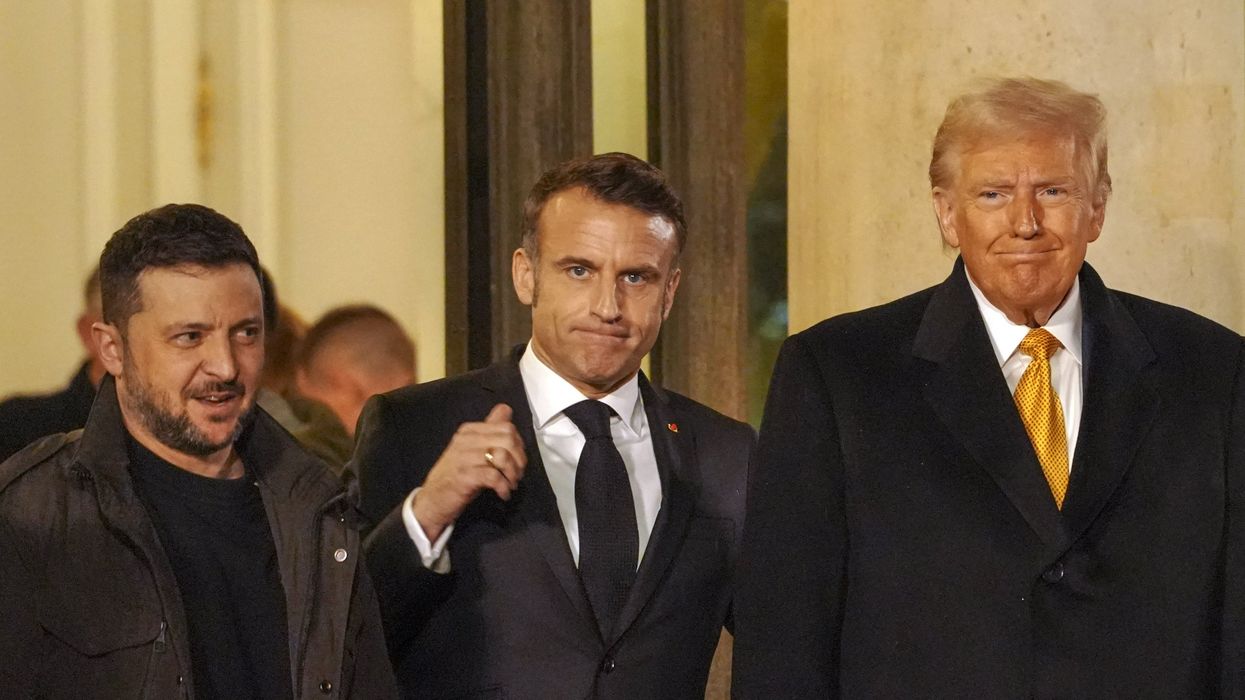Many Americans fear what Donald Trump will do after assuming the presidency in January — and understandably so. Trump's pathological self-absorption has no place in American government, let alone at its very top.
But the specific type of threat Trump poses is often misunderstood. Like all presidents, his domestic powers are limited. He will face stiff resistance at the federal, state and local levels of government.
For instance, as we've already seen with Trump’s first choice for attorney general, Matt Gaetz, the Senate can and will reject some of his Cabinet nominees. The Republicans’ very slim House majority, moreover, means Democrats can stymie Trump's legislation with support from just a few Republicans. Federal and state courts, for their part, have ruled against Trump consistently — and will continue to do so. Even Trump's own executive branch departments, like the Department of Justice, will again resist his most brazen initiatives.
That's not to say Trump won’t score some wins. He will appoint conservative judges, roll back important regulations, knock the tax rate down a few percentage points, accelerate deportations (though not at the level he's promising) and so on. Elon Musk might even get some federal employees canned. And for those on the wrong side of these policies the consequences will matter.
But the limits on what Trump can achieve domestically are significant. And much that he does accomplish can be rolled back or neutralized by Democrats in the future.
Foreign policy, however, is a different story. This is where the potential consequences are biggest and where the bells often can't be unrung. This is where Trump, like all presidents, has the fewest checks on his power. This is where the true Trump threat resides.
Trump will soon be commander in chief of the military and America's head of state. In the foreign policy arena, he won't need Congress to pass legislation to make a major impact. Nor will he need thousands of federal bureaucrats to implement his biggest policies. With few exceptions, the courts won't be able to reverse a thing he does.
Even express constitutional restraints on the president in foreign policy no longer apply. The president has usurped the role of Congress in declaring war against other nations. While Article I of the Constitution says that Congress (not the president) has the power “to declare war,” presidents since Harry Truman have repeatedly waged war without congressional declaration.
Trump will, indeed, be largely unrestrained in the international sphere. Yet the world he inherits is as complicated as ever. The Middle East is fractured with war, blood is spilling in Russia and Ukraine, North Korea's weapons cast a shadow across the globe, populist unrest throbs globally and China's military gets stronger every day.
Having Trump's volatile hand stirring this pot — with few checks to restrain his impulses — is exponentially more dangerous than whatever legislation a razor-thin Republican majority can muster in Congress. As president, Trump can call Vladimir Putin any time. He can confront Xi Jinping on social media before breakfast. He can belittle Kim Jong Un publicly on a whim.
Trump's supporters like to highlight that there were fewer wars when he was president than there are today. This may be true. But it's quite a stretch to credit Trump for this outcome. His diplomatic unpredictability increases the likelihood of international conflict. That his first presidency avoided war bears little on what comes next.
Many Americans myopically follow the daily political drama in Washington. That's where the cameras focus and where retweets propel partisan spats into viral frenzies. This is a mistake. Trump's MAGA tentacles will reach far beyond our national borders. His stage will be the world.
America's domestic checks and balances neutralized Trump the first time he was president. They will again. With foreign policy, on the other hand, the Republicans’ volatile champion will once again be unrestrained.
Cooper is the author of “ How America Works … and Why it Doesn’t. ”




















Trump & Hegseth gave Mark Kelly a huge 2028 gift